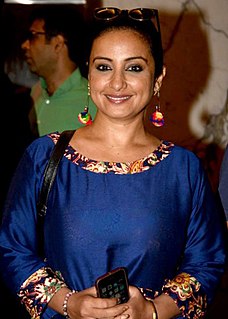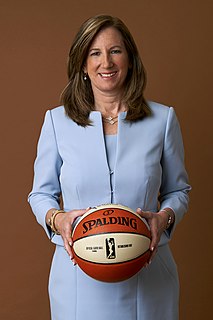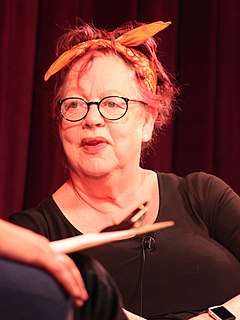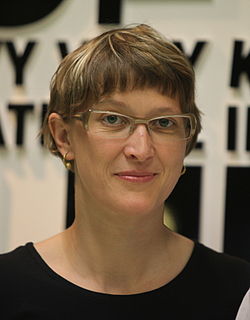A Quote by Anne-Marie Slaughter
The American work environment has to change, not the women. We should be recognizing that what women are not fitting into is a very narrow, male-dominated workplace of the 1950s.
Related Quotes
Today, although as a whole, the industry is still male-dominated, more women are drawing comics than ever before, and there are more venues for them to see their work in print. In the 1950s, when the comic industry hit an all-time low, there was no place for women to go. Today, because of graphic novels, there's no place for aspiring women cartoonists to go but forward.
I joined a very male-dominated profession back in 1986. I wanted to work with big multinational Fortune 500 companies, but you don't come into the firm and automatically get those. So, quite frankly, a key to my success was that I found male mentors and male sponsors. I think some women are afraid to say that.
What business needs now is exactly what women are able to provide, and at the very time when women are surging into the work force. But perhaps even more important than work force numbers is the fact that women - who began this sweeping entry in the mid-seventies - are just now beginning to assume positions of leadership, which give them the scope to create and reinforce the trends toward change. The confluence is fortunate, an alignment that gives women unique opportunities to assist in the continuing transformation of the workplace.
The bonding of women that is woman-loving, or Gyn/affection, is very different from male bonding. Male bonding has been the glue of male dominance. It has been based upon recognition of the difference men see between themselves and women, and is a form of the behaviour, masculinity, that creates and maintains male power… Male comradeship/bonding depends upon energy drained from women.
What if not just women, but both men and women, worked smart, more flexible schedules? What if the workplace itself was more fluid than the rigid and narrow ladder to success of the ideal worker? And what if both men and women became responsible for raising children and managing the home, sharing work, love, and play? Could everyone then live whole lives?
By giving women training to sue a company for a 'hostile environment' if someone tells a dirty joke, we are training women to run to the Government as Substitute Husband (or Father). This gets companies to fear women, but not to respect women. The best preparation we can give women to succeed in the workplace is the preparation to overcome barriers rather than to sue: successful people don't sue, they succeed.




































